Stonehaven’s poetry festival, The Wee Gaitherin, returns for its second year on July 29 and 30, with readings, workshops and music.
Jacqueline Wake Young talks to Ceitidh Chaimbeul, one of more than 70 poets and musicians who will travel from all corners of the UK and Ireland to take part in the
two-day event.
Turn up, tune in, take part. That’s the motto of what is billed as Scotland’s most democratic poetry festival, offering a platform to “the unknown and the renowned alike”.
As well as being free to attend, The Wee Gaitherin puts established poets on the same stage as fledgling writers with work in English, Scots and Gaelic and also offers a showcase for independent poetry publishers.
Workshops
Activities started last month, with workshops at Mackie Academy in Stonehaven backed by The Scottish Book Trust and run by acclaimed writers Hugh McMillan of Dumfries and Charlie Gracie of Glasgow.
An exhibition of the pupils’ poetry will run at Stonehaven Library during the festival.
Among those turning up and taking part is Ceitidh Chaimbeul, who, as well as being a Mod Gold Medal winner and the Scottish Poetry Library’s first Gaelic Ambassador, is also one of the voices on language-learning app Duolingo.
Ceitidh, 35, started writing Gaelic songs and poems while at the School of Scottish Studies at Edinburgh University.
She graduated in 2008 with an Honours degree in Scottish Ethnology and Celtic Studies and is a Gaelic teacher at Millburn Academy in Inverness.
Ceitidh has won two National Gaelic Awards for supporting learners and is a passionate champion of the language.
“Gaelic is an essential part of Scottish culture, history and heritage,” said Ceitidh.
“An amazing lady called Catriona MacAskill from Eriskey who was awarded the British Empire Medal for services to Gaelic once said to me ‘If Gaelic ever dies, it won’t be my fault’ and I try to aspire to that.”
She talked about Gaelic’s place throughout the whole of Scotland, including the north-east.
“It is so important to recognise, value and celebrate all of Scotland’s languages in all its regions and areas.
“There is a proverb which says Tìr gun teanga, tìr gun anam – a land without a language is a land without a soul – and I believe we lose something from our national identity if we don’t appreciate the richness that Scots and Gaelic have brought and continue to bring to all parts of Scotland and its culture.
Respect
“No language is superior or inferior to any other and we need to have equal respect for Gaelic, Scots and English and their use across the country.
“One of the most important manuscripts in Gaelic history, The Book of Deer, was compiled in Old Deer in the 10th Century and there is a thriving Gaelic community in Aberdeen including the Aberdeen Gaelic Choir, Aberdeen Gaelic Club and Fèis Obar Dheathain.”
Watch Ceitidh read her poem Cladh sa choille/Cemetery in the woods in Gaelic here.
Ceitidh was brought up in Lochalsh but her family connections are to Raasay, Inverness and Penicuik.
She said: “Although my mum and nana are fluent speakers I wasn’t brought up speaking Gaelic but I was surrounded by the music and song.
“For centuries Gaelic was an oral language and poetry and song were the only way of recording our history, passing on news and even gossiping.
“Writing poetry and songs in Gaelic is continuing a tradition that has been around for as long as the language itself.
“When I’m writing a new piece I start with a brainstorm of words or phrases – English and Gaelic – before I start refining it.
“Both languages tend to come at once so I could never say I write in one language or the other, it really is both.”
Traditional music
Ceitidh performs traditional songs as well as her own work.
“I’ve been performing on stage since I was five and I was very lucky to attend the National Centre of Excellence in Traditional Music which taught me a lot about stagecraft,” she said.
“Saying that, there is still an element of nervousness in taking your own material off the page and allowing people into your world.
“Poetry is intensely personal and a product of emotional reactions and feelings and I still get a bit of anxiety about converting it from the page to a performance.
Watch Ceitidh read her poem, Cladh sa choille/Cemetery in the woods in English here.
Asked how it felt to win at the Mod, she said: “The Gold Medal is considered one of the premier prizes for Gaelic solo singing and can only be won once.
“I grew up watching my mum compete; she won in 1998 in Skye.
The Mod
“I started competing for it in 2006 and reached the final eight times.
“In 2018 in Dunoon I was six months’ pregnant with Isabelle and entered for it again and was fortunate enough to win.”
Ceitidh has support from Comhairle nan Leabhraichean (the Gaelic Books Council) for her first collection, due to be published this year.
She added: “I feel very privileged to be performing again at The Wee Gaitherin amongst such a fantastic range of poets.
“A festival that gives the same platform to all of Scotland’s languages, and champions established and emerging poets alike, is a rare thing.”
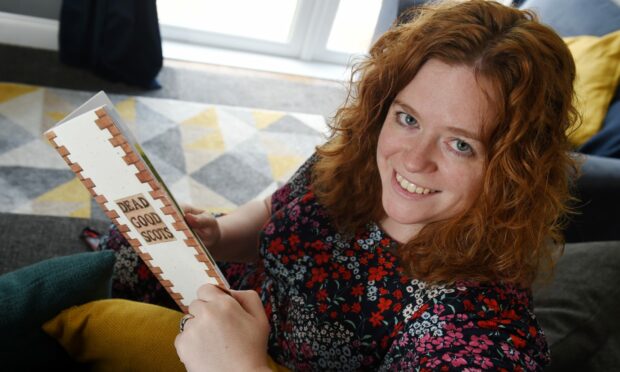
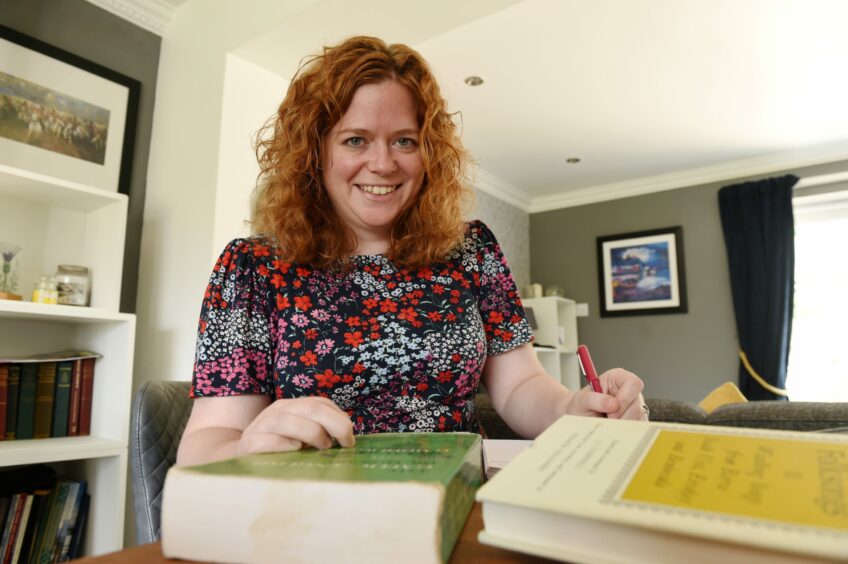
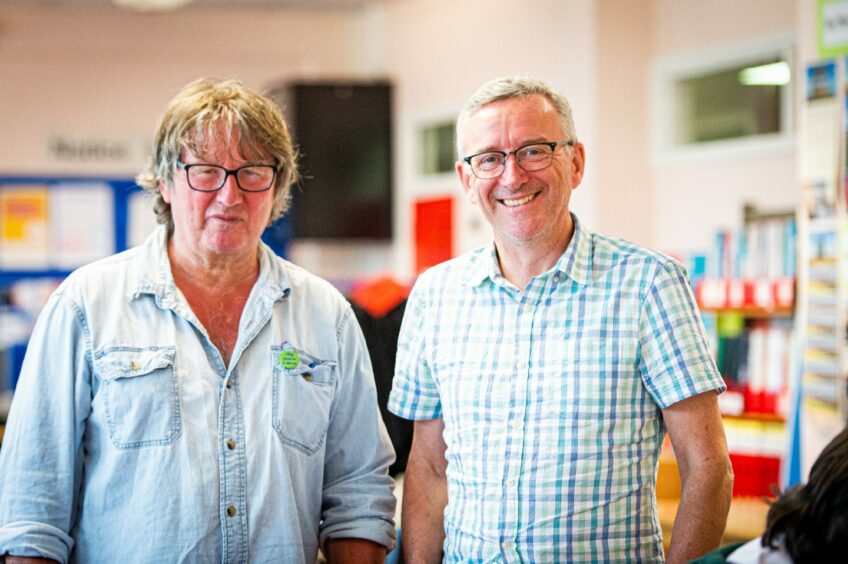
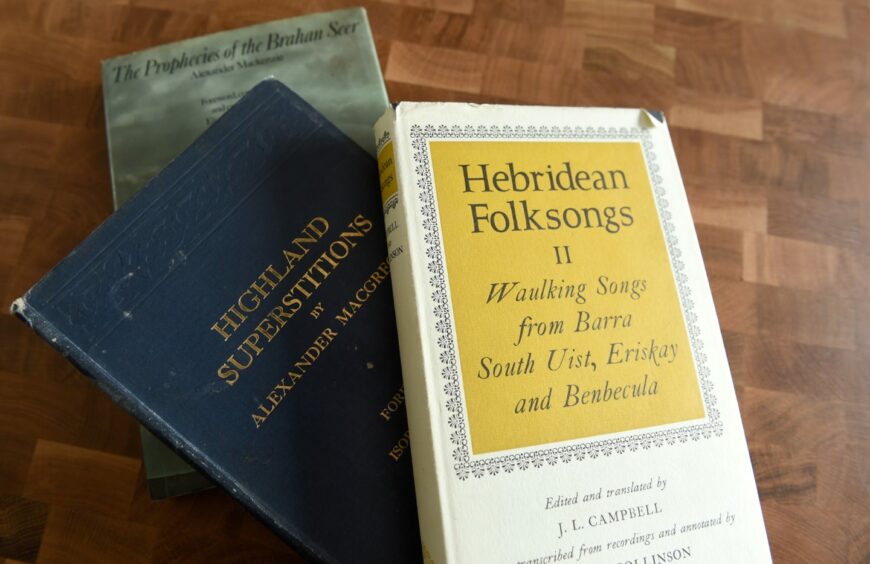
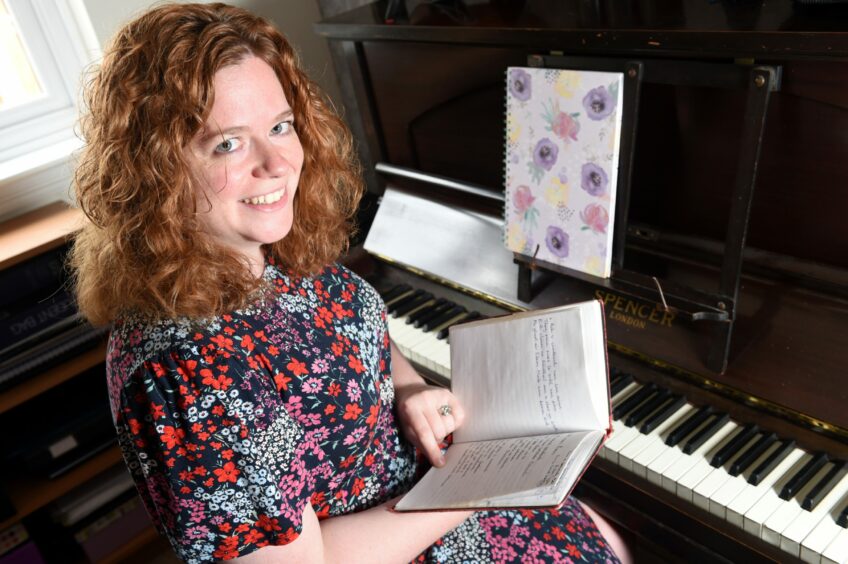
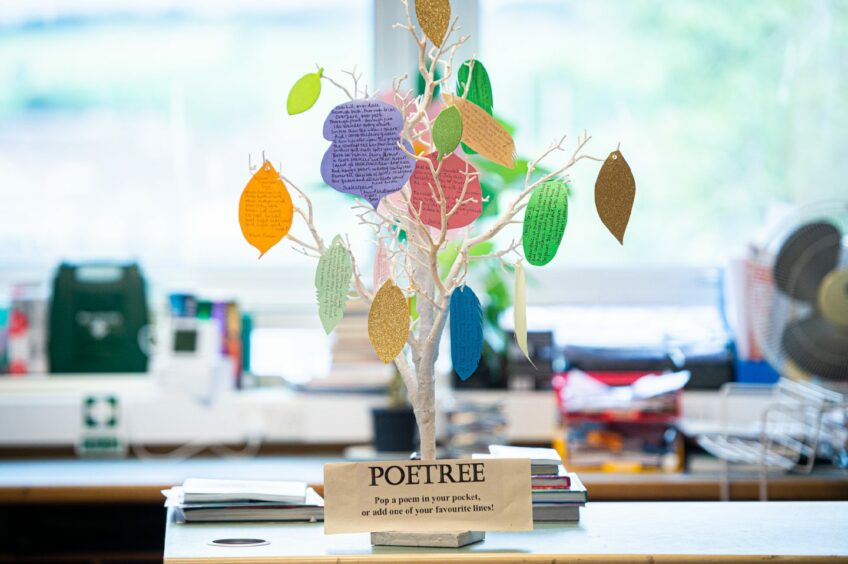
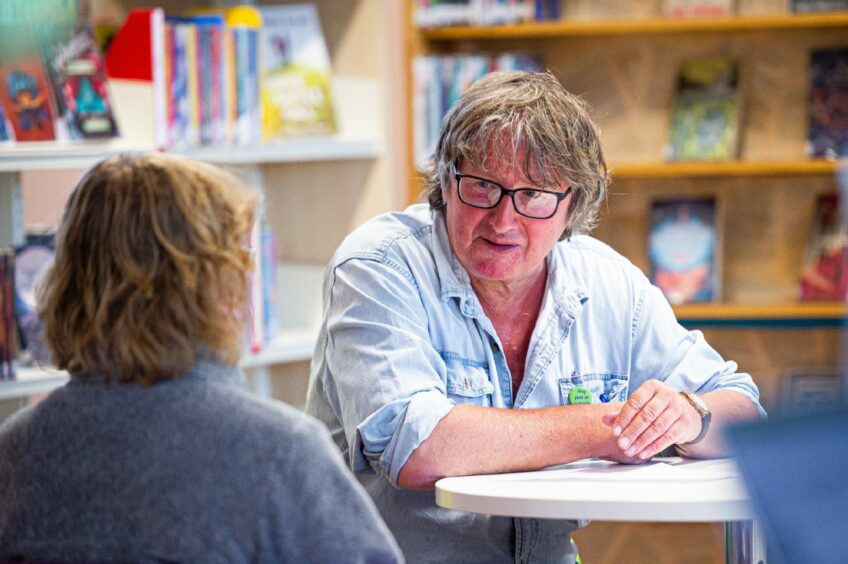
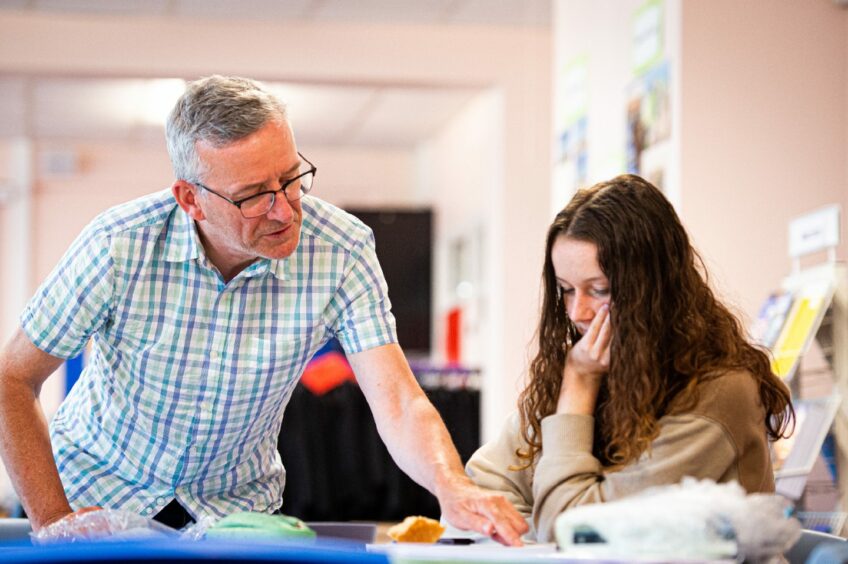
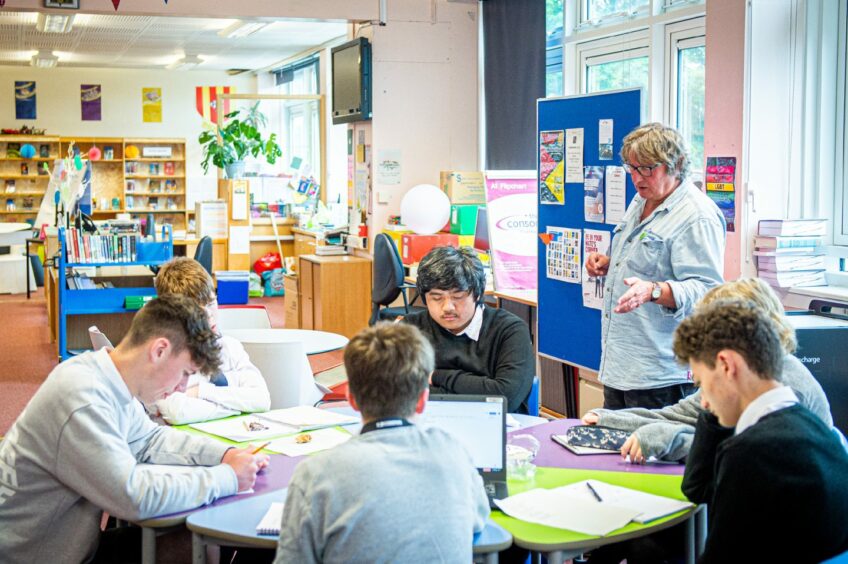
Conversation